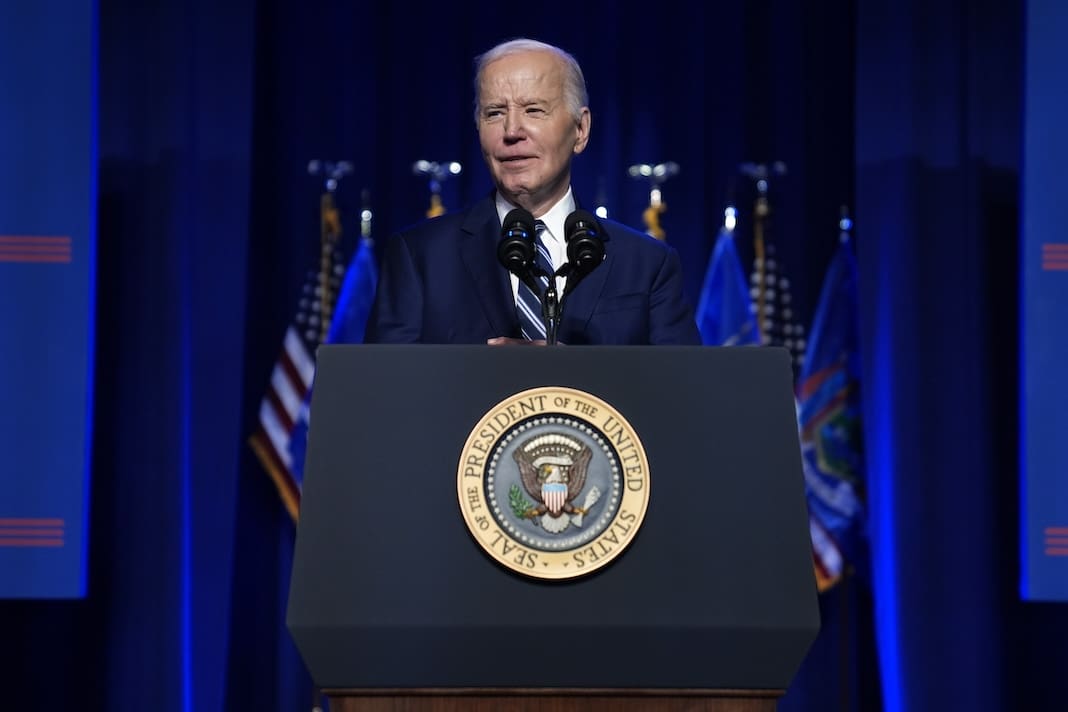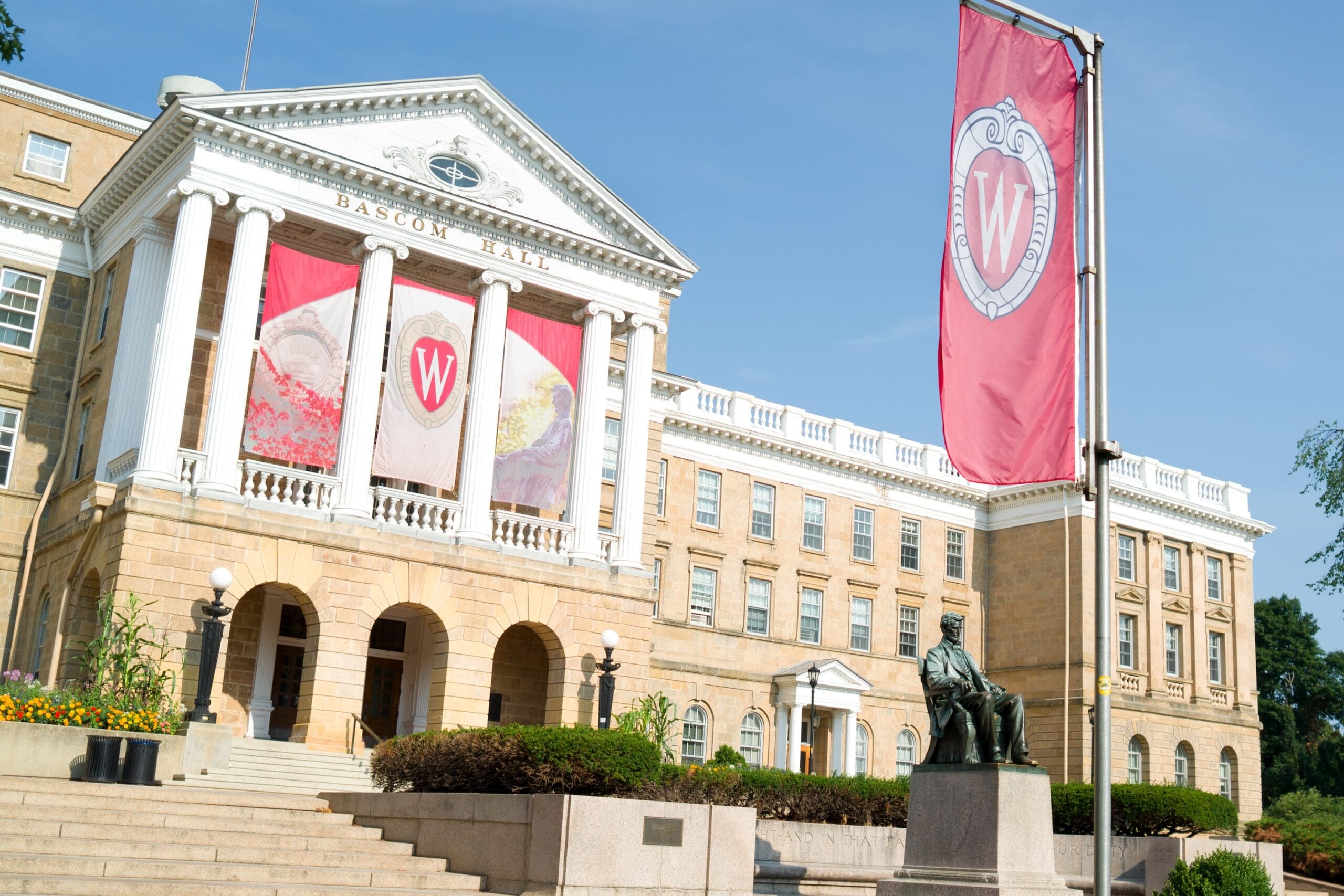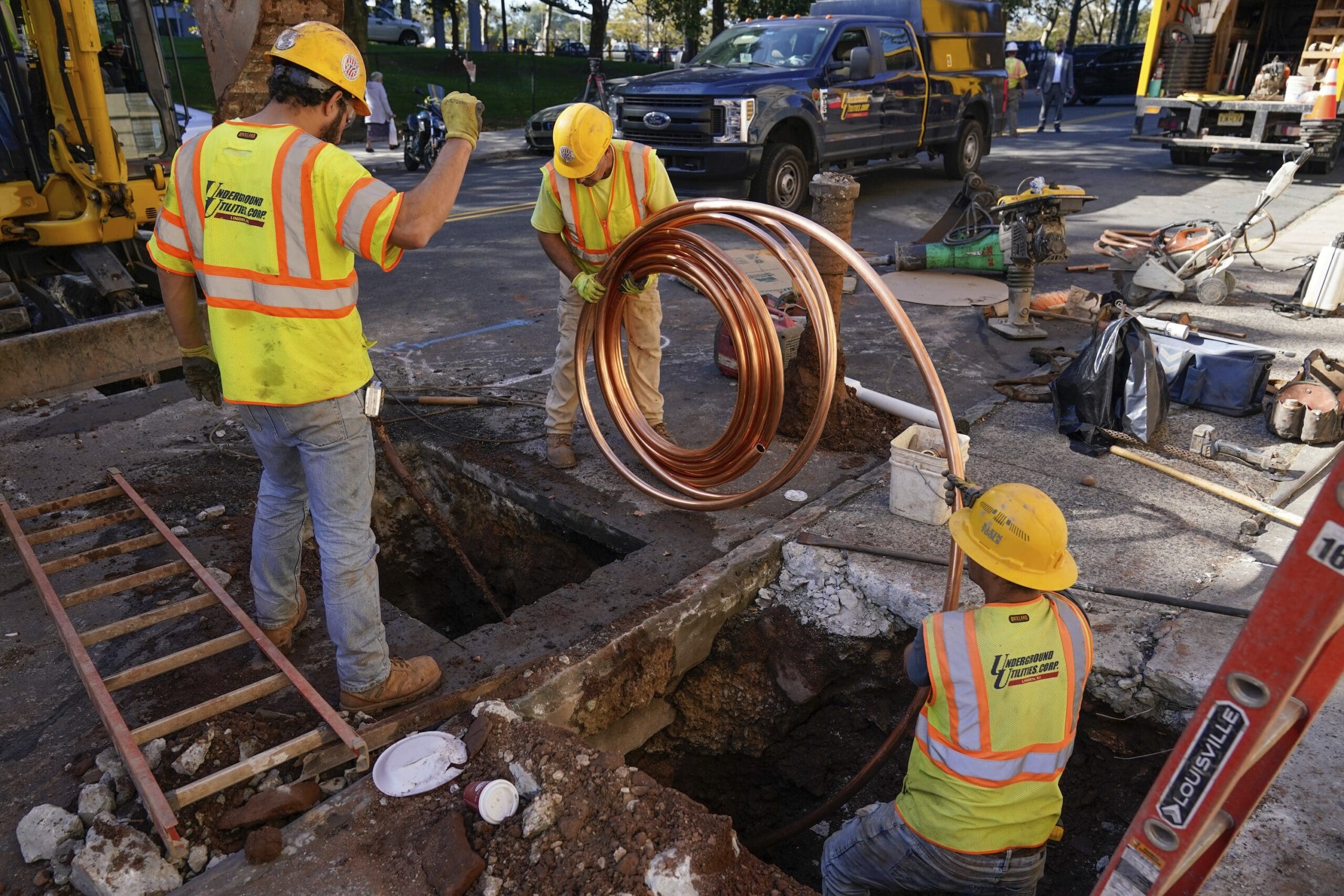Wisconsin communities getting more than $414 million in water infrastructure funding
The funds will help upgrade and replace aging facilities, reduce phosphorus runoff, prevent flooding and more.

Democratic Gov. Tony Evers and the Wisconsin Department of Natural Resources announced Wednesday that $414.4 million had been awarded to 84 municipalities in Wisconsin to improve wastewater and stormwater infrastructure.
The money will help communities across the state upgrade and replace aging facilities and equipment such as sewer lines, pumping stations and wastewater treatment facilities. The funding will also help some communities combat phosphorus pollution and flooding challenges.
“Helping communities replace and modernize aging systems to ensure they meet federal and state regulations is a critical part of our work to ensure every Wisconsinite has healthy, safe and clean drinking water from their tap,” Evers said in a statement. “These dollars will help communities ensure they have the infrastructure their residents can trust to address wastewater and stormwater and be even better prepared to handle any future challenges that may arise.”
Evers’ announcement said the award sets a record for funding from the Clean Water Fund Program, which was established by the Water Quality Act of 1987 and has been funded since 1991. It’s the second round of funding for the Clean Water Fund Program that came from the Bipartisan Infrastructure Law.
The city of Reedsburg was awarded the largest amount for a project and is receiving $77.8 million to construct a new wastewater treatment facility in a new location. During a flood in 2008 that devastated the community, the wastewater treatment facility was under water. The city pumped sewage through the sanitary system’s pipes with diesel engines, and it was three weeks before the facility was back up and running. Reedsburg also requested just over $10,000 to construct a new equipment for a main line and collection site for sewage.
The village of Denmark has requested $5 million to remove harmful pollutants from wastewater, reduce phosphorus output from its wastewater treatment plant, and bring the village’s system into compliance with the state’s phosphorus regulations.
Wisconsin restricts how much phosphorus, a mineral commonly found in fertilizer and wastewater, is allowed to be released in bodies of water from farms and wastewater treatment facilities. Too much phosphorus released into waterways can have a harmful effect on the environment, humans, and animals by creating an aggressive amount of algae and other large aquatic plants and decreasing the level of dissolved oxygen.
Cities have been working to become compliant with the state’s regulations, which were implemented in 2010. In 2021, the city of La Crosse broke ground on a $68 million upgrade to its wastewater treatment facility, in part to reduce phosphorus runoff. In May, the city of Madison stopped treated wastewater from flowing into Badger Mill Creek because of phosphorus.
In addition to Denmark, at least nine other municipalities will be using this latest round of Clean Water Fund Program funding to combat phosphorus runoff, including the village of Soldiers Grove, which requested $386,000 for its first phase to update its wastewater treatment facility.
While more regulation is being imposed on pollutants such as phosphorus and per- and polyfluoroalkyl substances in the state and nationwide to combat climate change, the work to meet these new standards can be expensive, and this latest round of funding is focused on smaller and disadvantaged Wisconsin communities.
“The funding, principal forgiveness in particular, allows a small community like Denmark to comply with DNR phosphorus standards while helping reduce the impact on the village’s sewer rates and customers,” said Susan Selner, the village president.
Officials have been investing more government funds to combat climate change and upgrading water infrastructure in recent years. In October, Evers and the Department of Natural Resources announced $402 million in a combination of state and federal funding to remove lead pipes and address PFAS contamination to improve drinking water quality. Wisconsin is also receiving $250 million from the Infrastructure Investment and Jobs Act to replace lead service lines. Through the Bipartisan Infrastructure Law, the Environmental Protection Agency has awarded in the last two years more than $11 billion to states for water infrastructure and other climate change-related initiatives.
Polling shows Wisconsinites care about clean water. A 2022 Marquette University Law School poll revealed that 20% of respondents were very concerned about water safety in their community, and another 23% said they were somewhat concerned. Clean water advocates told the Milwaukee Journal Sentinel that the poll signaled to them that residents want officials to act on water quality.




